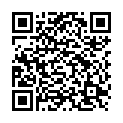|
|
|
| Module code: BITM-692 |
|
|
2C (2 hours per week) |
|
3 |
| Semester: 6 |
| Mandatory course: yes |
Language of instruction:
German/English/French/Spanish |
Assessment:
Term paper with presentation / Can be repeated semesterly
[updated 17.09.2018]
|
BITM-692 (P440-0073) International Tourism-Management, Bachelor, ASPO 01.10.2013
, semester 6, mandatory course
BITM-692 (P440-0073) International Tourism-Management, Bachelor, ASPO 01.10.2015
, semester 6, mandatory course
BITM-692 (P440-0073) International Tourism-Management, Bachelor, ASPO 01.10.2017
, semester 6, mandatory course
BITM-693 International Tourism-Management, Bachelor, ASPO 01.10.2020
, semester 6, mandatory course
|
30 class hours (= 22.5 clock hours) over a 15-week period.
The total student study time is 90 hours (equivalent to 3 ECTS credits).
There are therefore 67.5 hours available for class preparation and follow-up work and exam preparation.
|
Recommended prerequisites (modules):
None.
|
Recommended as prerequisite for:
|
Module coordinator:
Prof. Dr. Achim Schröder |
Lecturer:
Studienleitung
[updated 06.04.2016]
|
Learning outcomes:
During the colloquium, students will explain the topic of their Bachelor´s thesis, present a concept for the scientific approach to the topic, present the central results of their thesis and be able to discuss their results in a scientific debate.
The objective of the colloquium is to show that students are able to apply the skills they acquired in the course of their studies.
[updated 17.09.2018]
|
Module content:
The colloquium consists of three parts:
I) "Kick-off meeting"
- Organization and registration
- Evaluation criteria and scientific work
- Time management
- Finding and selecting a topic
- Further procedure
II) Presentation of the proposed topics by the students
III) "Exam Colloquium": Presentation of the practical study phase, as well as the Bachelor´s thesis by the students; group discussion.
[updated 17.09.2018]
|
Teaching methods/Media:
The colloquium is a special academic achievement. Its objective is to show that students are able to apply the skills they acquired in the course of their studies.
Interactive course with a high level of student participation: scientific colloquium with presentation, discussion and documentation.
[updated 17.09.2018]
|
Recommended or required reading:
General study and examination regulations for Bachelor´s and Master´s programs (ASPO) at the University of Applied Sciences (htw saar).
Basic literature from the individual modules (depending on the subject)
Guidelines for the preparation of scientific papers from the Faculty of Economics and Business Administration
https://www.htwsaar.de/wiwi/studium/service/Formulardownload/formulardownload
Literature on scientific work, e.g.
-Hungenberg, H., Problemlösung und Kommunikation, München, latest edition
-_Theisen, M.R., Wissenschaftliches Arbeiten, Verlag Vahlen, München, latest edition
-_Franz, S., Powerpoint, Verlag Markt und Technik , München, latest edition
-Kornmeier, M., Wissenschaftstheorie und wissenschaftliches Arbeiten - Eine Einführung für Wirtschaftswissenschaftler, latest edition
-_Minto, B., Das Pyramiden-Prinzip _ Logisches Denken und Formulieren, Econ, Düsseldorf, 1993 (Urheberin und Ex-McKinsey)
Topic-specific literature, e.g:
- Text books
- Scientific monographs
- Anthologies
- Articles from trade journals and other journals
- Internet contributions (e.g. conference contributions, company information, research papers from universities, presentation slides)
[updated 17.09.2018]
|


